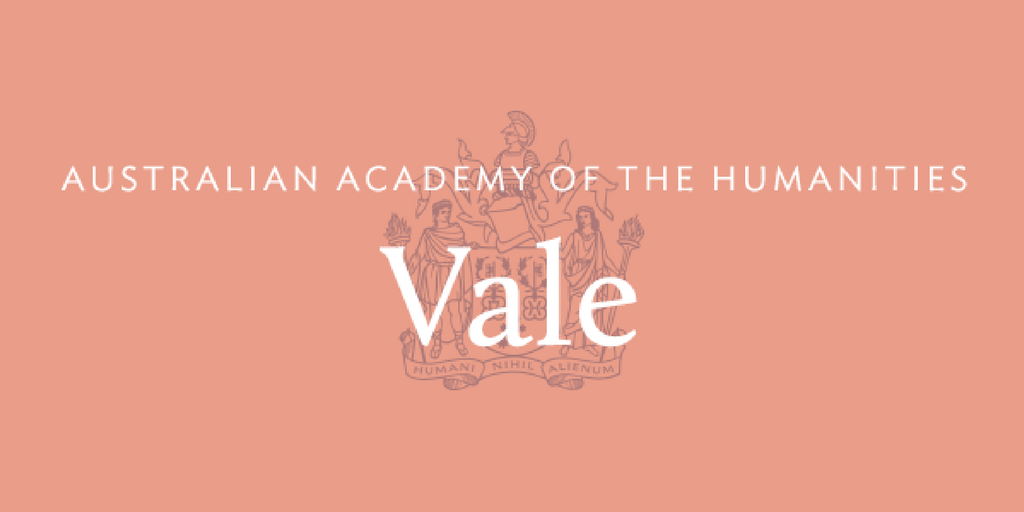Vale Tom O’Regan Death | Obituary – Vale Tom O’Regan sadly passed away, He has been a key part of the @VisualPolUQ program from the very beginning, running a project on the ethics and aesthetics of the film.
Vale Thomas ‘Tom’ O’Regan, is a pioneering scholar who was integrally involved in the development of cultural policy studies, cultural studies and screen studies in Australia and internationally.
Tom O’Regan was born on 5 October 1956 in Gayndah, Queensland. He was in the first intake of students to Griffith University in Brisbane in 1975, graduating with a BA (Hons) in 1978 and a PhD in 1986. His PhD pioneered the application of discourse analysis to film studies. This study, along with several major articles, had a lasting influence on the field, and culminated in the international research monograph Australian National Cinema (1996).
It was during the 1980s as a young scholar that O’Regan helped define the field of Australian communication, cultural and media studies through such editions as An Australian Film Reader (with Albert Moran, 1985) The Australian Screen (with Albert Moran, 1989)
Professor O’Regan’s research and publications reflect his abiding interest in the various ways and byways of film, television and cultural sectors. One notable contribution over the 2000s was the documentation and understanding of what has been variously called, international production, “runaway production”, and “Global Hollywood”.
This work is marked by its attention to the places and spaces in which such production occurs and the policy infrastructures required to support it. He was the co-author of The Future for Local Content (with Ben Goldsmith, Stuart Cunningham and Julian Thomas, 2001); Cinema Cities/Media Cities (with Ben Goldsmith, 2003); The Film Studio: Film Production in the Global Economy (with Ben Goldsmith, 2005); Local Hollywood: Global Film Production and the Gold Coast (with Ben Goldsmith and Sue Ward, 2010); and Rating the Audience: The Business of Media (with Mark Balnaves and Ben Goldsmith, 2011). He co-edited Mobilising the Audience (with Mark Balnaves and Jason Sternberg, 2002) on audience development strategies in the arts and media sectors and also several thematic journal issues on cultural and media policy topics. These include issues on ‘Creative Networks’ (2004), ‘Ratings in Transition’ (2002), and ‘Culture: Industry, Development, Distribution’ (2002).
In addition to his prolific and influential research output, Professor O’Regan held a series of leadership roles throughout his career, beginning at Murdoch University, where he held positions as Lecturer (1986-1992), Senior Lecturer (1993-1997) and Director of the Centre for Research in Culture and Communication (1996-1998). He became Associate Professor in the School of Media, Communication and Culture at Murdoch (1998-1999) before taking up positions as Director of the Australian Key Centre for Cultural and Media Policy and Professor of Film, Media and Cultural Policy at Griffith University.
From 2002 to 2003, he was Australia’s UNESCO-Orbicom Professor of Communication. He moved to the University of Queensland in 2004 where he was Professor of Media and Cultural Studies, Associate Dean of Research (2010-2011) and the Head of the School of English, Media Studies and Art History (2005-2008). He was a key part of the vibrant and innovative research culture at UQ, acting as Cluster Leader for UQ Humanities and Creative Arts ERA Submission and as Research Integrity Advisor. He held visiting Fellowships and Professorships at the University of Wisconsin-Madison, La Trobe University, Dublin City University, the University of Wales, Cardiff, Methodius University, Macedonia, and the University of Natal, Durban.
News of Professor O’Regan’s passing has been met with great sadness amongst the cultural and communication studies section, his colleagues at UQ, and across the humanities community. Tributes have been quick to mention his unique wit, curiosity and charm, his abounding collegiality and his important and lasting contribution to culture and communication studies, the cultural policy moment and to the research culture at UQ.
We express our sympathy and deepest condolences to Regan’s family today and in the days, weeks, months, and years that are to come as they cope with his passing. May his soul rest in peace.
Vale Thomas ‘Tom’ O’Regan, a pioneering scholar who was integrally involved in the development of cultural policy studies, cultural studies and screen studies in Australia and internationally.https://t.co/1XsQo7q3zk pic.twitter.com/DidTpc9fJr
— Australian Academy of the Humanities (@HumanitiesAU) July 17, 2020
Also, Read Jaedon Odunuga-Evans Identified And Presumed Drowned
